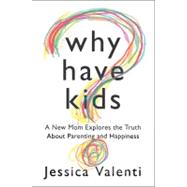
| Introduction | p. ix |
| Lies | |
| Children Make You Happy | p. 3 |
| Women Are the Natural Parent | p. 17 |
| Breast Is Best | p. 31 |
| Children Need Their Parents | p. 45 |
| "The Hardest Job in the World" | p. 63 |
| Mother Knows Best | p. 77 |
| Truth | |
| Giving Up on Parenthood | p. 95 |
| "Bad" Mothers Go to Jail | p. 109 |
| Smart Women Don't Have Kids | p. 121 |
| Death of the Nuclear Family | p. 133 |
| Women Should Work | p. 145 |
| Why Have Kids? | p. 161 |
| Acknowledgments | p. 169 |
| Notes | p. 171 |
| Bibliography | p. 177 |
| About the Author | p. 179 |
| Table of Contents provided by Ingram. All Rights Reserved. |
The New copy of this book will include any supplemental materials advertised. Please check the title of the book to determine if it should include any access cards, study guides, lab manuals, CDs, etc.
The Used, Rental and eBook copies of this book are not guaranteed to include any supplemental materials. Typically, only the book itself is included. This is true even if the title states it includes any access cards, study guides, lab manuals, CDs, etc.